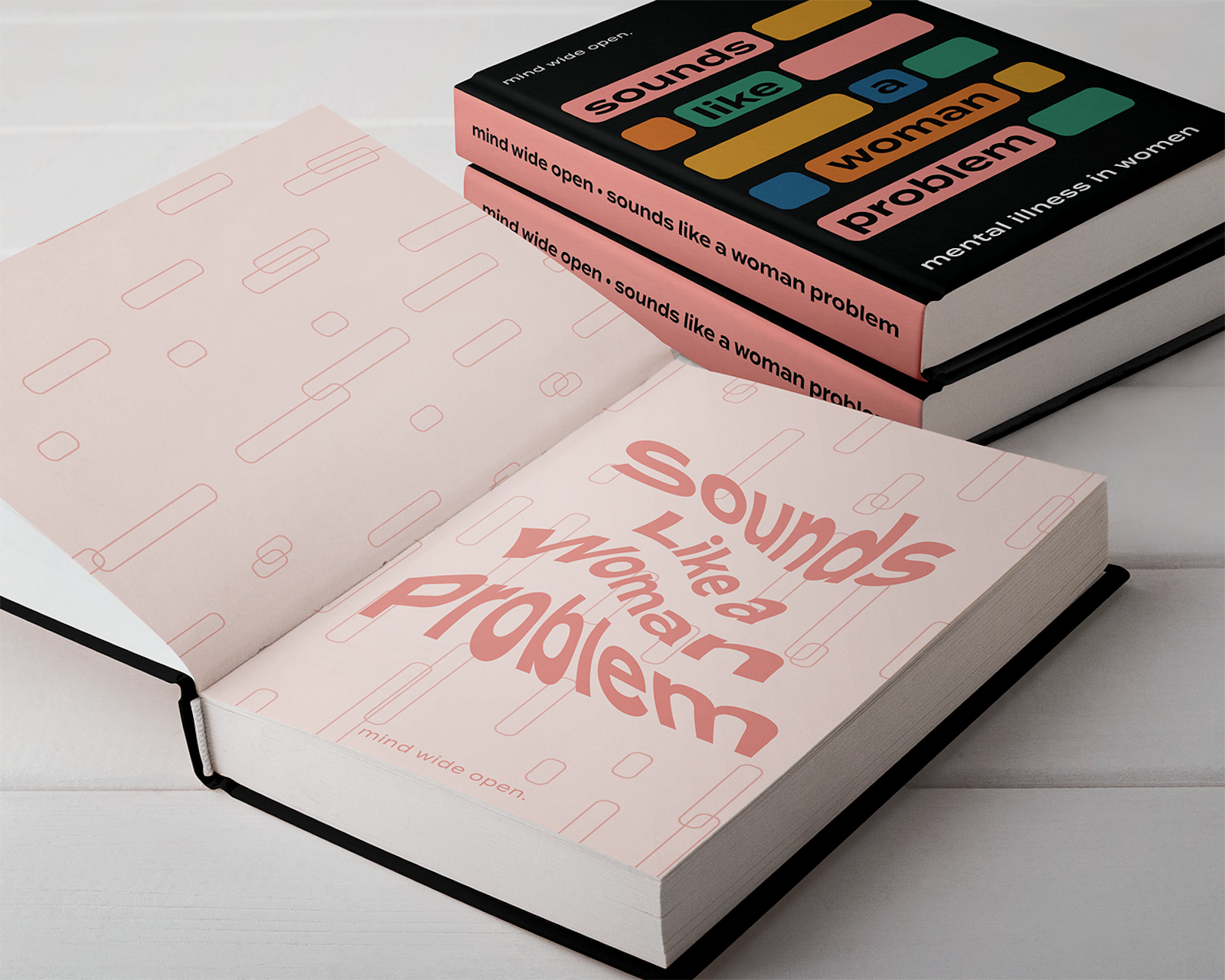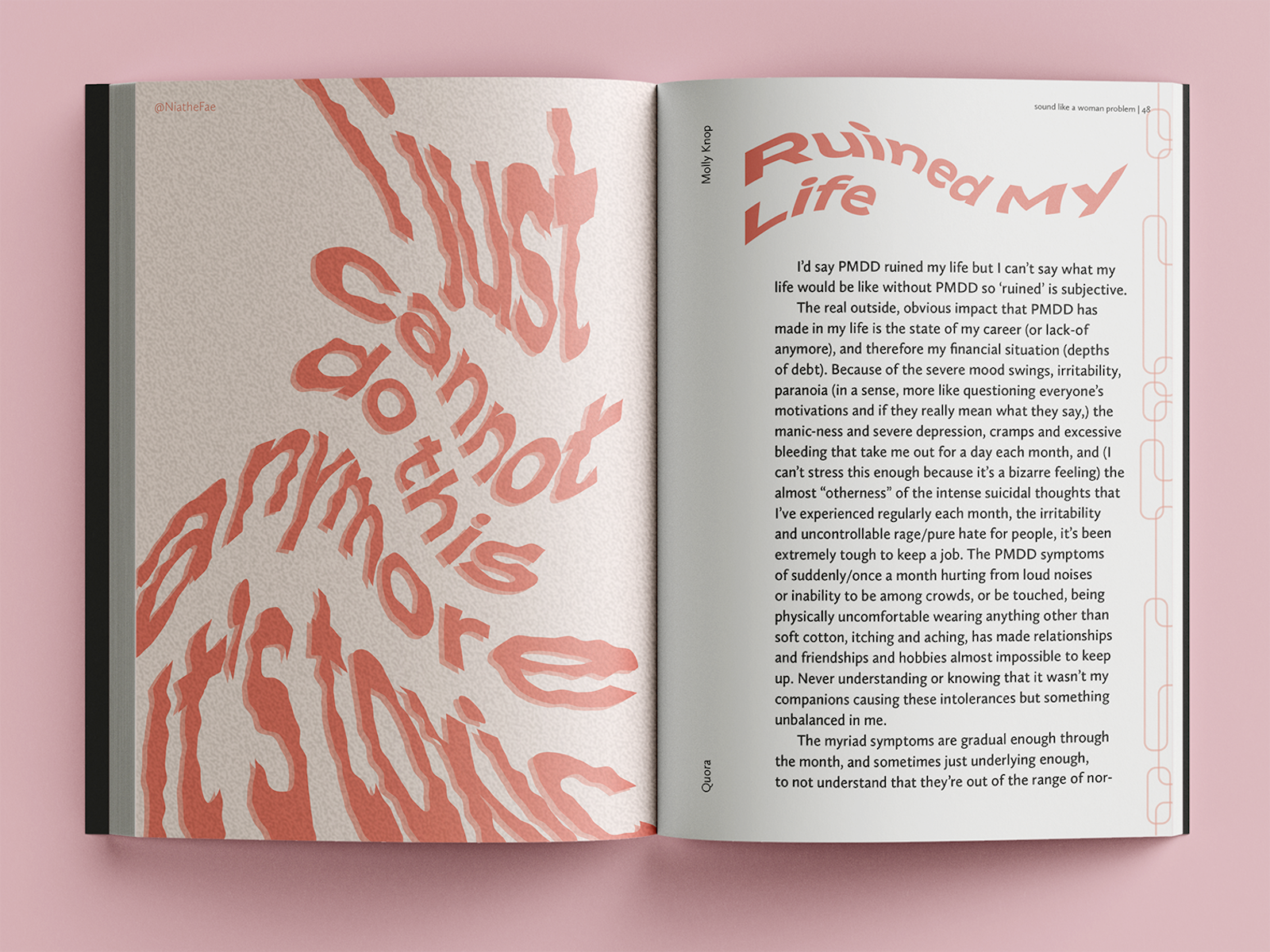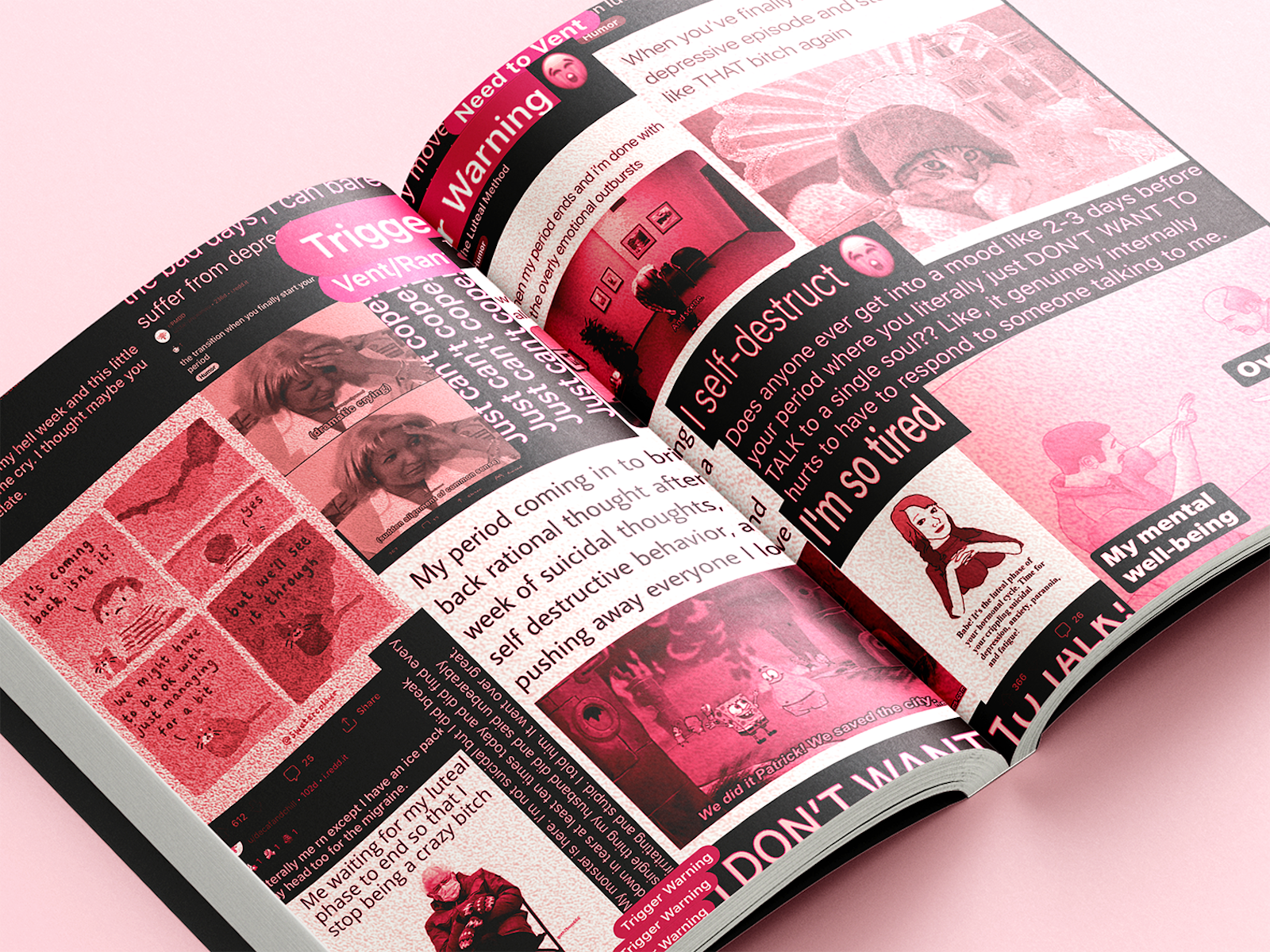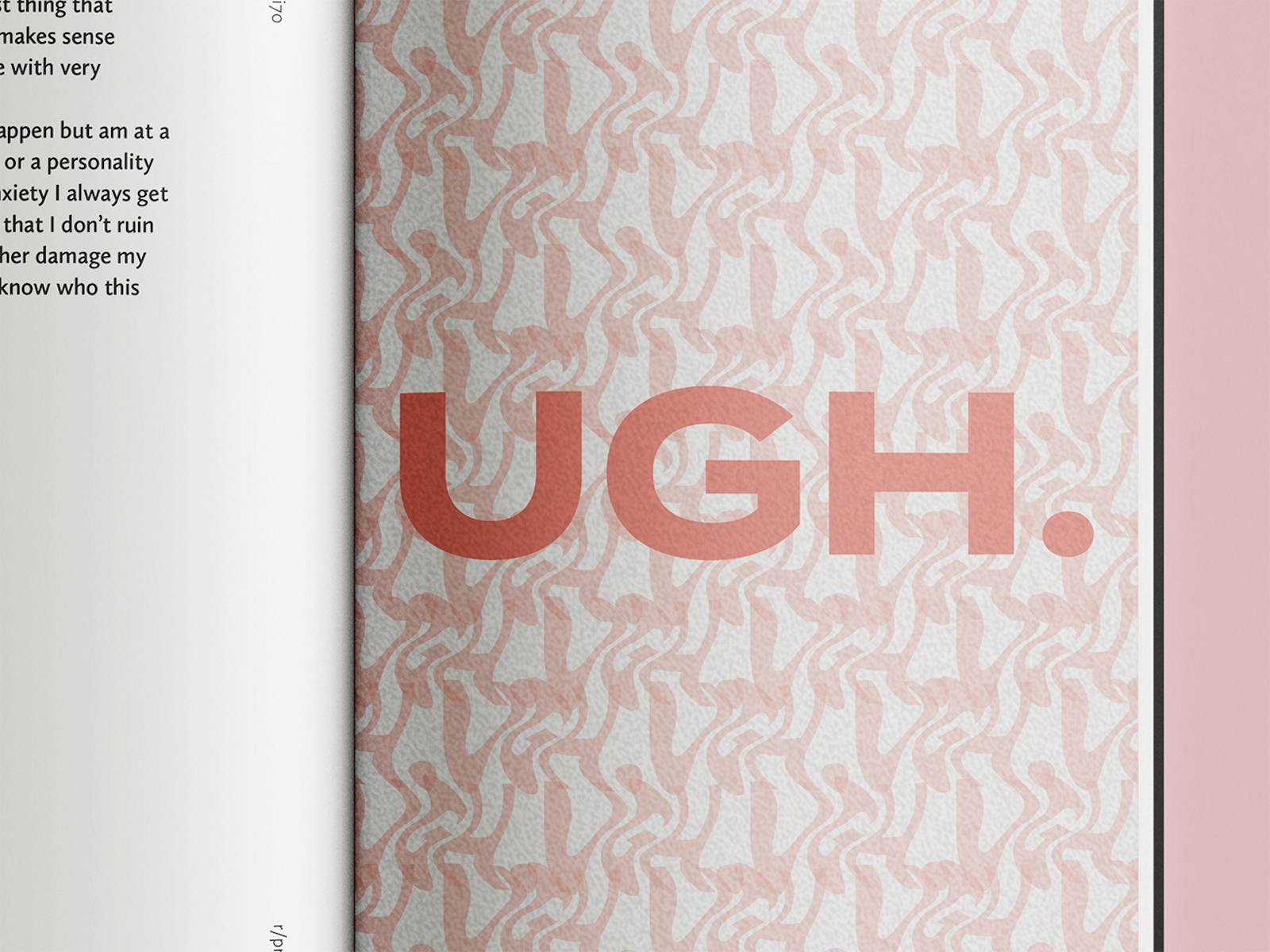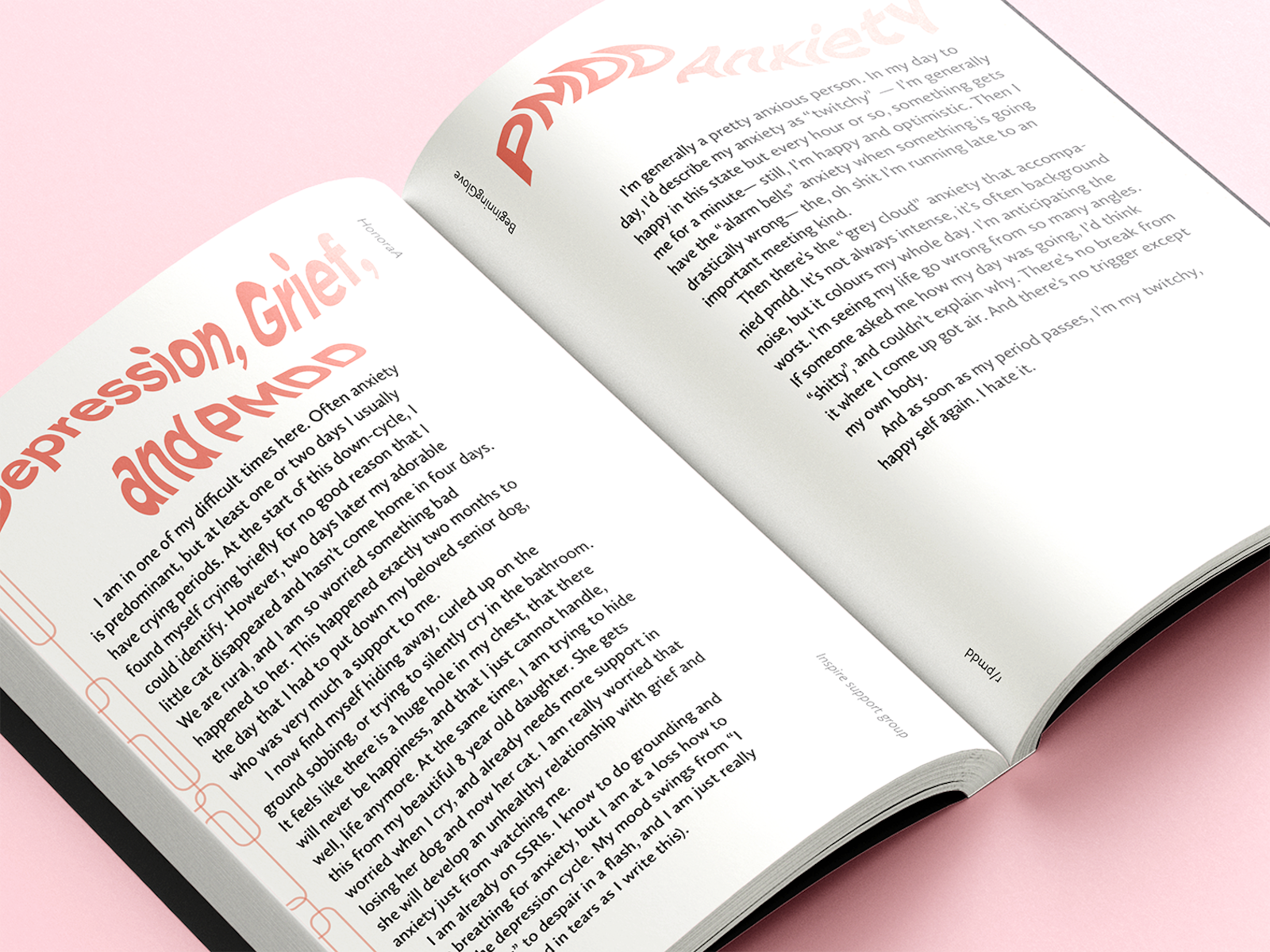Mind Wide Open: A Portrayal of Mental Health and its Stigmas on Social Media
Sounds Like a Woman Problem is one of three books in the series Mind Wide Open. This series of books is an exploration of how mental illness is portrayed on social media. Specifically, Sounds Like a Woman Problem focuses on women’s experiences with mental health and mental illness, namely through the lense of Premenstrual Dysphoric Disorder, a severe form of depression that affects an estimated 5% of AFAB people. Through the collection of posts from various social media sites, including Reddit, Facebook, and Twitter, this book aims to highlight the multiple facets of mental health in a way that is not frequently represented and give deeper insight into the realities of mental illness.
Sounds Like a Woman Problem came to be as a result of being inspired by internet culture, gender divides, and personal experiences as a woman with mental illness. Although PMDD is a severe and often debilitating mental illness, it is an invisible disability that affects a minority population; as a result, it is very under researched and talked about very little in the medical field. While it can be amusing to see jokes and memes about mental illness on social media, it can also create a negative impact in the eyes of those actually living with these conditions. In a culture where heavy topics are often not taken seriously, it is important to realize that these are not always true realities.
Design choices were made to mirror the context of the books in the Mind Wide Open series. A bright, playful color scheme was utilized to contrast the heavy, often dark subject matter of the books. Specifically, pink was chosen as the color for Sounds Like a Woman Problem because of its connection to femininity. The text manipulation used throughout the book was done in a way to create a sense of unease and uncertainty within the reader, feelings which are representative of mental illness. The body copy, set in a humanist sans serif typeface, is meant to give balance to the manipulated type, as well as add another element of human connection to the design.
This book is one part of a larger project, titled Mind Wide Open. This series of three books was created to fulfill the undergraduate capstone requirements for DePaul University’s BFA Graphic Design program.
- Designer
- Jenna Ligdas
- Professor
- Heather Snyder-Quinn
Project link
